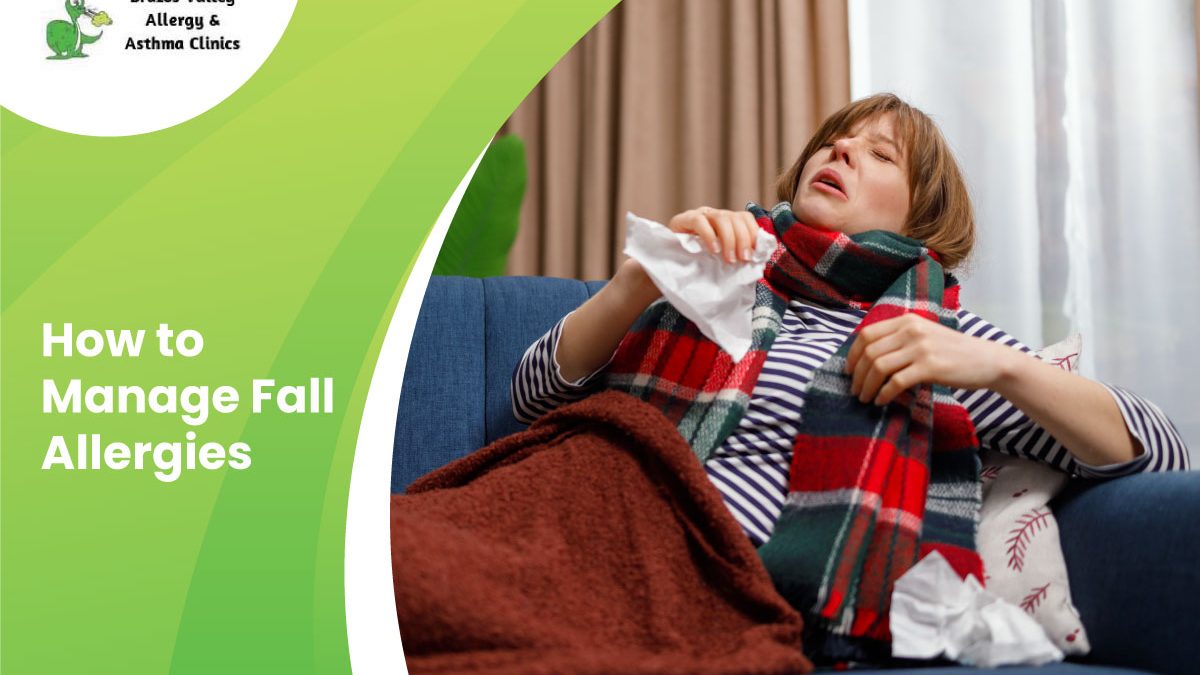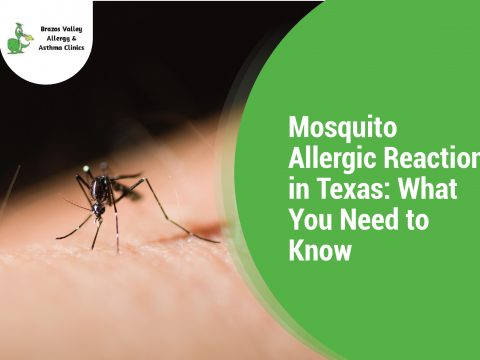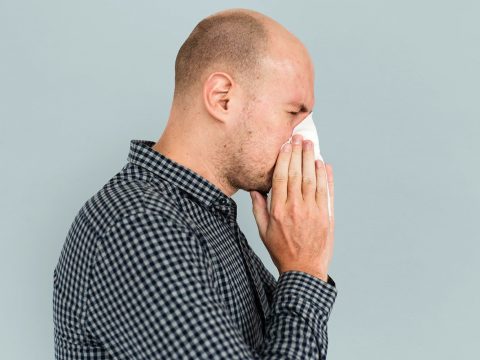- 979-485-9287
- office@bvallergy.com
-
 979-251-7804
979-251-7804
How to Manage Fall Allergies

Can You Outgrow an Allergy?
November 9, 2022
Can My Allergies Still Disappear?
November 30, 2022Allergy testing provides doctors with information about the adequate treatment approach for managing your allergies. Allergy skin tests are one of the most common methods allergists use to diagnose allergies.
What are Fall Allergies?
Fall seasonal allergies affect millions of individuals each year. In 2018, approximately 24 million cases of fall allergies were recorded out of 50 million. Seasonal allergies cause a variety of symptoms that range from mild to severe. Some individuals might take them as minor nuisances, while others may experience life-threatening situations.
So, how can one deal with fall allergy symptoms? The answer lies within this blog post. We aim to provide you with relevant information regarding fall allergy management. Our discussion will highlight fall allergy symptoms, causes, and appropriate treatment methods.
We understand the challenges of living with allergies. That’s why we created this blog for you. So, if you’d like to know how to manage fall allergies, let’s dive into our discussion.
Understanding Fall Allergies
Fall is the season when ragweed growth is at its peak. Ragweed is a plant that releases pollen that typically triggers allergies. Although ragweed may not grow in every region, its pollen can travel hundreds of miles by wind. Studies say that roughly 23 million people in the United States suffer from fall allergies.
It is possible due to the wide variety of ragweed species that grow all over America. Moreover, as mentioned earlier, ragweed pollen is lightweight and can glide effortlessly through the wind.
Fall Allergy Signs and Symptoms
The common signs and symptoms of fall allergies are similar to allergies that occur at other times. Below are the typical symptoms you may experience if you have allergies during the fall season.
- Watery eyes
- Coughing
- Dark circles under the eyes
- Sneezing
- Itchy eyes and nose
- Runny nose
The severity of the symptoms differs from one person to another. But one thing is certain, it can affect your quality of life.
What Causes Fall Allergies?
Several factors contribute to fall allergy symptoms. Below is a compilation of the typical causes of fall allergies.
Fall Allergens
Ragweed
Ragweed starts to bloom in August. It can last until September and October. Ragweed is perhaps the most common culprit in triggering allergic reactions during this season.
Molds
Unlike ragweed, where you can get exposed outdoors, molds can trigger your allergies indoors. Molds grow during the fall season. They develop in the dark corners of your house. Moreover, Some individuals may trigger an asthmatic attack due to aspergillus fumigatus from molds.
Smoke
Since it’s slightly windy and colder during the fall season, some individuals burn leaves and garden debris. The smoke triggers an allergic attack in some people.
Treatment Methods
The typical treatment for fall allergies is oral and nasal medications. We’ve gathered some of the best medicines widely known to manage allergies.
Oral Antihistamines
Taking oral antihistamines reduces the symptoms of fall allergies. One tablet a day can provide relief. Moreover, antihistamines are over-the-counter medicines. It means that you can purchase them from your local pharmacy anytime. One important note you should consider when taking antihistamines is that it induces drowsiness. Take as the packaging suggests or as prescribed by your allergist.
Oral Decongestants
Oral decongestants can provide immediate relief if you’re experiencing a clogged or runny nose from fall allergies. They reduce inflammation of your nasal airways, allowing you to breathe more easily. However, take them with caution. Always follow your doctor’s recommended dosing.
Corticosteroid Nasal Sprays
Anti-allergy nasal sprays provide instant relief from nasal allergy symptoms. These medicines reduce mucus buildup that causes breathing difficulties.
Nasal Saline Irrigation
Using nasal saline irrigation provides relief from fall allergy symptoms. It contains sodium chloride that effectively washes out thick or dry mucus buildup. Moreover, they flush pollen from ragweed and other allergens. This method kills bacteria too. Making it one of the most efficient treatments for allergy symptoms.
Management Tips
Fall allergies are almost impossible to prevent. However, it is manageable, especially if you know what to do. Here are some of the most efficient ways to manage fall allergies.
Reduce Exposures to Allergy Triggers
Here’s a compilation of what you can do to reduce exposing yourself to allergy triggers:
- Learn your local pollen count
- Wear a facemask if you need to go out
- Wash your clothes when you return home
- Keep your house clean
- Close your doors and windows at all times
- Use an indoor air dehumidifier
- Keep anti-allergy medications at all times
These are simple steps that you can try to limit allergen exposure and manage the symptoms. You can also try home remedies if you don’t have time to visit your doctor or don’t have anti-allergy medications ready.
When to Visit an Allergist
If over-the-counter medicines and home remedies do not work, it’s best to consult your allergist. You may have an underlying health condition that only a doctor can treat. Observe and monitor your symptoms.
If your condition doesn’t get better, talk to your allergist. They can provide you with the best treatment for your allergies.
Enjoy the Fall Season Without Allergies
The fall season is ideal for having a picnic with your loved ones. But if you have allergies, it may not be the time of year for you. Luckily, the Brazos Valley Allergy and Asthma Clinics allergists are here for you.
Our allergy doctors have years of experience using evidence-based methods in treating fall allergies. We can naturally boost your immune system with allergy shots. With this method, you can enjoy the fall season without fearing an allergic reaction.
You can schedule a meeting with Dr. Paul Jantzi, our board-certified allergy clinic in the Brazos Valley region.
Book an appointment here.




